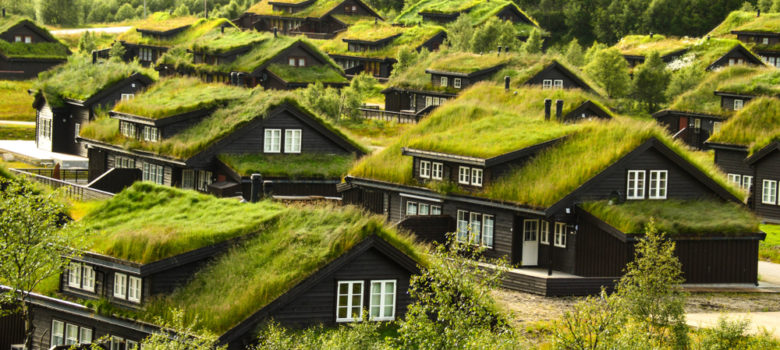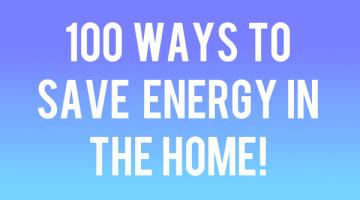
What is an eco-home or eco-friendly house?
“Eco-friendly” is a bit of a catch-all term for anything that tries to have a low environmental impact. Likewise, an “eco-house” is a dwelling that tries to use as little energy as possible, made from the most environmentally friendly materials. It’s not an exact science, but it usually comes down to building materials, insulation, energy systems, and central heating.
Why are eco-homes important?
One of the biggest problems facing the UK energy industry is that our houses are so old, so draughty, and really just not built for energy efficiency. By retrofitting better insulation and energy systems, and making sure that new builds are held to higher energy efficiency standards, we can dramatically cut UK energy consumption. This would help us to reduce our climate-change impact, and the amount of money we have to invest in to energy systems.
What are the simplest changes that you can make to your current home to make it more environmentally friendly?
The thing about heat is that it’s expensive and energy-intensive to create, but extremely easy to lose. The amount of energy and money it takes to maintain warmth in a poorly insulated home is much, much higher than for a well insulated home with draught proofing and modern windows. The easiest and cheapest insulation to do yourself is loft insulation, which can make a huge difference in the winter months. For bigger projects you’d be looking at cavity or external wall insulation, and double glazing.

What about lighting in an eco-home?
The old style of lightbulbs gave off 90% heat and 10% light, which is an extremely inefficient way to run. LEDs, on the other hand, flip this on it’s head, giving off 90% light and only 10% heat. That’s why they’re much cooler to handle – they’re putting a lot more energy into lighting your house and a lot less into getting hot. LED lights also last around 20 times longer, so even though they’re a little more expensive to buy in the first place, the savings to your bills mean that they easily pay for themselves over their lifetime.
What are the advantages and drawbacks of solar panels?
Solar panels have dropped in popularity recently, following the end of the Feed-in Tariff. This was the government scheme that paid out to solar panel owners for generating and exporting the energy from their panels. Within the next couple of years this will be replaced with new tariffs for solar panel energy, which will be offered by energy suppliers. Until these come in to play, you might find it a little bit tight financially to justify getting solar panels installed, but they are still an excellent way to generate your own electricity and stop relying so heavily on energy companies and fossil fuels.
Can changes be made in the garden too?
The garden is one of the easiest places to make cheap, simple changes that can improve both the eco-friendliness of your home and your lifestyle. For example, using a guttering system and water butt will provide you with useable rainwater for you garden – this water actually tends to be much better for plantlife that what comes out of your taps. Using this to water local flowers will support your local ecosystem, and cut your water bills.
Growing your own fruit and veg is also a great way to cut down on the carbon cost of your diet. Try to pick seasonal plants that are suited to the climate, and consider investing in a small greenhouse to improve your yield.
If you are building an eco-home from scratch, what kind of things should be considered?
Building an eco-home is not necessarily the easiest thing to do, as you’re often forced to choose between the most eco-friendly options and the most budget friendly ones. Try to source local materials with a low environmental impact, but if you’re forced to compromise on something then think long term about conserving energy. The best thing for the environment is a low carbon footprint and minimal energy consumption, so make insulation and a well thought-out heating system top priorities.
Are we seeing an increase in the numbers of eco-homes being built or adapted?
There has certainly been an increase in the number of people pursuing eco-friendly housing options in recent years. More and more people are aware of the threat to climate change, and how essential it is to reduce our energy consumption. People are also thinking more seriously about the materials they use for building projects, and what the environmental effects are.
The government is setting strict standards too. They’ve brought in the Minimum Energy Efficiency Standards, forcing landlords to make energy improvements to properties on the rental market, and have promised to ban all gas boilers in new builds from 2025. They also run schemes like ECO-3 to offer help with installing energy efficiency measures.
Think we missed something? Do you have a different opinion?
Comment below to get your voice heard…












No Comments yet! Be the first one.